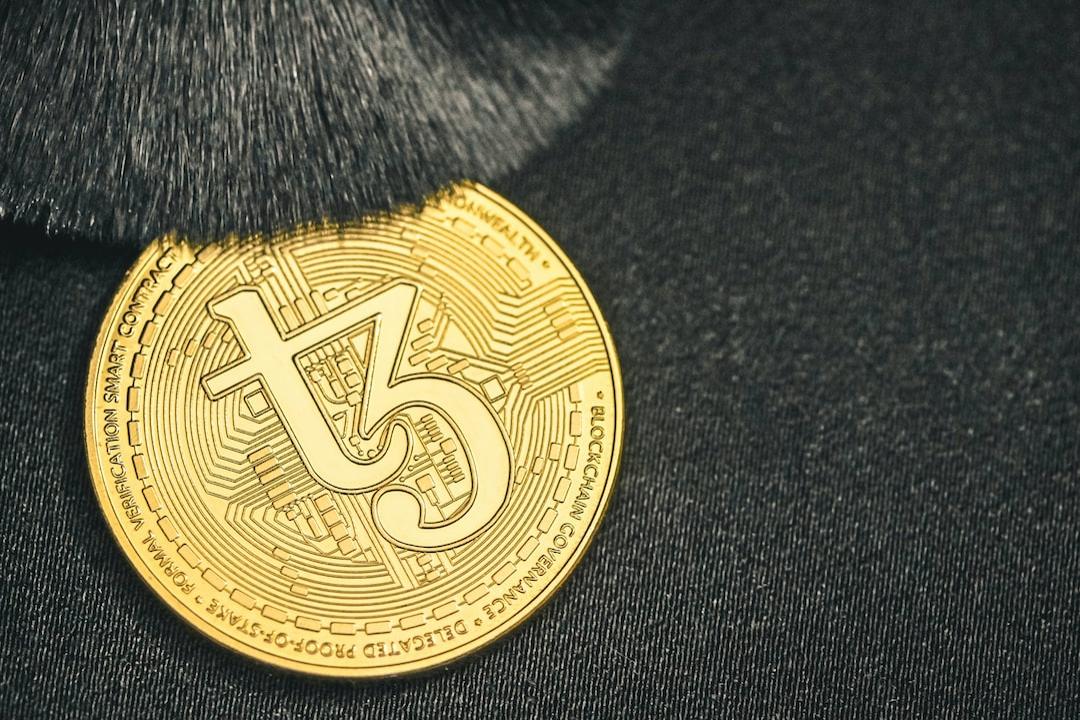Another “Crypto President”?
From humble beginnings to being elected president, Lee Jae-myung has become an inspirational figure in the hearts of the Korean people. On June 4, the Korean Election Commission announced that the counting of votes for the 21st presidential election had concluded, showing that Lee Jae-myung was elected as the new president with a vote share of 49.42%. His total vote count was 17,287,513, setting a record for all past elections. Lee Jae-myung also took office on the 4th, moving the presidential office back to the Blue House.
Notably, cryptocurrency policy emerged as a popular topic among candidates from various parties during this presidential election in Korea. To attract the votes of young people and the middle class, both the leading Democratic Party candidate Lee Jae-myung and the People Power Party candidate Kim Moon-soo proposed proactive and progressive commitments regarding cryptocurrency asset policies.
In his policy commitment, Lee Jae-myung discussed virtual assets as part of a “fair economy.” He stated that upon taking office, he would focus on “making Korea a digital asset hub” as a theme to lay the foundation for nurturing the virtual asset industry.
Lee Jae-myung, Pro-Crypto Assets
In terms of fundraising and gaining popularity through crypto assets, Lee Jae-myung is actually a “predecessor” to U.S. President Trump. Back in 2022, during his competition for the presidency against Yoon Suk-yeol, Lee Jae-myung demonstrated a proactive attitude toward cryptocurrency and was interpreted as attempting to attract the young voter demographic that primarily supports cryptocurrencies. He also raised campaign funds through the issuance of NFTs (non-fungible tokens), becoming the world’s first presidential candidate to adopt this method. At that time, he remarked regarding the cryptocurrency industry: “Even if we are blindfolded, the existing market will not disappear. If we cannot avoid it, we must seize the initiative.”
“I will actively support the establishment of a digital asset ecosystem, including creative digital asset issuance, secure transactions and storage, indirect investment, and risk diversification through insurance,” he stated. In January 2022, Lee Jae-myung participated in a meeting with representatives and experts from four major virtual asset exchanges, pledging to recognize the virtual asset business institutionally and to safeguard various business opportunities.
Lee Jae-myung pointed out that after sufficient protective measures are taken to safeguard investors and prevent market chaos, he would also consider allowing Initial Coin Offerings (ICOs). “The ICO ban is not a law, but a unilateral measure taken by the Ministry of Justice,” he further stated: “If we have a stable system in place, it is possible to achieve this goal before enacting licensing laws.”

Lee Jae-myung has also publicly stated: “The past Democratic government’s negative attitude towards virtual assets, even attempting to exclude them from the financial system, was itself a misguided decision that hindered normal market development. I apologize as a Democratic Party member.” Additionally, he announced a review of allowing the issuance of Security Token Offerings (STOs) based on physical assets in virtual assets and raising the tax-free threshold for cryptocurrency investment returns.
As countries worldwide implement regulations and compliance policies for cryptocurrencies, Lee Jae-myung significantly expanded his policy propositions regarding various categories of virtual assets in this election, making his advocated crypto policies generally more concrete.
Promoting Spot ETFs and Stablecoins
“I will create a secure investment environment for young people to accumulate assets and plan for the future.” On May 6, 2025, Lee Jae-myung promised on social media to support the asset appreciation of young people. He explicitly committed to institutionalizing the virtual asset spot ETF and constructing an integrated regulatory system.
On May 13, 2025, the Democratic Party of Korea established a Digital Assets Committee dedicated to formulating cryptocurrency policies and promoting industry development. The committee held its first meeting in the National Assembly Hall in Seoul, emphasizing the importance of addressing regulatory uncertainties and issues related to stablecoin regulation. One of its primary tasks is to draft the “Digital Asset Basic Law” to establish a legal framework for crypto assets and stablecoins. The committee plans to explore comprehensive institutional arrangements for virtual assets, including stablecoins, NFTs, and Security Token Offerings (STOs) in the future.
Additionally, Lee Jae-myung expressed support for issuing a Korean won-pegged stablecoin, advocating for the establishment of a stablecoin market denominated in Korean won to reduce capital outflow issues caused by foreign currency stablecoins (like USDT and USDC). Prior regulations in Korea prohibited the issuance of local stablecoins, leading exchanges to rely on dollar-pegged stablecoins; Lee Jae-myung believes that “issuing a stablecoin linked to the Korean won will prevent the outflow of national wealth.” He compared the failure to accelerate entry into the stablecoin market to “the isolationist policies of the late Joseon Dynasty.”
Allowing National Pension Funds and Government Institutions to Invest in Crypto Assets
In terms of institutional investment, Lee Jae-myung supports expanding public funds’ allocation to crypto assets. He proposed allowing national pension funds and other government institutions to invest in cryptocurrencies once they meet stability standards.
The Digital Assets Committee under his campaign released a statement last month stating: “Announcing that the National Pension Service and other pension funds will invest in digital assets is not speculative investment but a controlled and scientifically diversified investment strategy in line with international optimization models.” The committee further added that abandoning digital assets due to emotional aversion poses real risks of falling behind global financial flows, losing monetary sovereignty, and missing opportunities for national asset growth.
“The idea that the National Pension Service investing in cryptocurrencies is absurd is contrary to the fact that the National Pension Service is already investing in assets indirectly linked to digital assets,” he stated. “Investing in digital assets is not a reckless gamble but part of an investment strategy that adheres to traditional theories.” The Digital Assets Committee plans to establish a system that allows the National Pension Service to go beyond indirect investments in virtual assets to make direct investments. After incorporating virtual assets into the system to ensure stability, the National Pension Service will continue to improve the legislative and regulatory framework to establish investment processes that comply with domestic and international regulations.
Relaxing Exchange and Bank Cooperation, Reducing Crypto Taxes
Lee Jae-myung’s regulatory focus on crypto exchanges emphasizes introducing a government-led rectification mechanism. He proposed establishing a comprehensive monitoring system to centrally regulate major trading platforms, with the government leading efforts to reduce market trading costs.
The current “1 Exchange – 1 Bank” rule in Korea limits each cryptocurrency exchange to partner with only one bank for Korean won deposit and withdrawal services. This rule was initially set up to prevent money laundering. Lee Jae-myung’s opponent, a member of the ruling party, has proposed abolishing this rule to allow exchanges to collaborate with multiple banks.
Although Lee Jae-myung himself did not explicitly state his position, his team emphasized accelerating legislative efforts into the second phase and further improving exchange regulation under the existing triad framework (financial regulation, anti-money laundering, and taxation). This series of policies suggests he is inclined towards relaxing exchange regulations and enhancing market competitiveness, whereas the previous government focused more on risk prevention and compliance requirements.
Regarding taxation, the Democratic Party to which Lee Jae-myung belongs proposed gradually implementing a tax on cryptocurrency transactions while significantly increasing the deductible tax-free amounts. According to reports from Yonhap News, the Democratic Party plans to impose a virtual asset income tax in 2024 as scheduled, but will raise the deduction limit for individual trading profits from the current 2.5 million won to 50 million won, thereby easing the tax burden for ordinary investors, especially young people.
Yonhap News noted that there is internal party controversy over whether to delay the crypto tax rate, but increasing the tax-free amount is a consensus. In contrast, the previous ruling government under Yoon Suk-yeol initially demanded a 20% tax rate on virtual currency gains starting in 2023 (for the portion exceeding 2.5 million won in annual gains). Lee Jae-myung’s approach essentially acknowledges the pervasiveness of crypto trading, reduces overly harsh tax barriers, and provides more incentive space while taxing, helping the market to develop healthily.
Conclusion
Lee Jae-myung’s victory not only represents a shift in the political landscape of Korea, but also signals that the country’s direction regarding cryptocurrency policies may undergo significant changes. From “embracing regulation” to “nurturing industries,” from institutional development to capital market alignment, his “new crypto policy” is beginning to take shape.
Against the backdrop of various countries strengthening compliance regulations for cryptocurrencies, whether Korea can achieve the goal of becoming a “digital asset hub” through this round of policy changes is something the market will continue to watch closely.
This article is a collaborative reprint from: PANews

